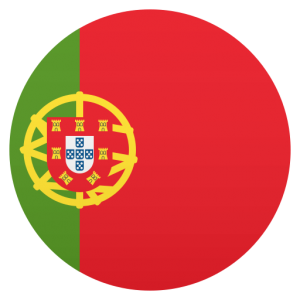What are you looking for ?
Content on this site
A person on the directory
Catalog training
Content on this site
A person on the directory
Catalog training

The Erasmus Mundus Joint Master’s Degree in Sustainable Catalysis (SuCat) trains students to provide them with a real perspective of technical, research and development, applied in different areas of catalysis. The SuCat programe is an integrated Master Programe designed by 3 Universities with a wide-range leadership in homogeneous catalysis (University Rovira I Virgili), biocatalysis (University of Aveiro) and heterogeneous catalysis (University of Poitiers).
This degree is a 2-years study programe with 120 ECTS credits welcoming around 20 students each year. All courses are taught in English in all Partner institutions. All students are asked to study full time.
The educational aim of this degree is to prepare students to become international experts and develop skills towards doctoral programes and/or professional activities in all declinations of catalysis. The programe will provide students with the expertise needed in modern European catalysis and prepare them for professions in research laboratories, industries and administrative organisations.
The two-year curriculum (4 semesters, 30 ECTS credits each) is designed to provide a solid background in catalysis, both in theoretical and experimental knowledge. It includes common basic courses on all declinations of catalysis (1st semester) at UP, where all students start the programe and a mandatory mobility scheme of a minimum of one semester (30 ECTS credits).
Welcome week (September), core modules (September-January), Exams (December-January) and Christmas holidays (December).
Sustainable development requires not only the piecemeal improvements of separate parts of production, consumption, and waste management but must also make sure that, for example, environmental impacts or anthropogenic material flows, are reduced from a system-wide perspective. Because catalysis allows for more efficient, less energy-intensive, and more selective chemical reactions, it is regarded by many as an enabling technology to promote overall sustainability. Therefore, it seems essential that students acquire concepts on how to think about catalysis in a global and sustainable way.
After the welcome week and introductory events, the 1st semester is planned to provide fundamental knowledge on all declinations of catalysis (heterogeneous, homogeneous, enzymatic). Transversal skills based on life cycle assessment will let the students apprehend the principles of sustainable chemistry. Lectures will be given by all partners, physically or using videoconferencing.
| Poitiers |
Green Chemistry | 6 ECTS |
| Poitiers |
Heterogeneous catalysis and eco-efficient processes | 5 ECTS |
| Tarragona |
Homogeneous catalysis | 5 ECTS |
| Aveiro |
Microbial and Enzymatic Catalysis | 5 ECTS |
| Poitiers |
Analytical tools | 6 ECTS |
| Poitiers |
Life cycle Assessment | 3 ECTS |
The second semester will be dedicated to an internship (February-June or July) in a partner or affiliated Institution. The aim is to work in a different declination of catalysis than the one the student will choose for the 3rd semester. This will allow the students to widen their knowledge in 2 different fields of catalysis.







For example, if a student wants to specialise in homogeneous catalysis, he/she will do the internship in enzymatic or heterogeneous catalysis. The main goal is to broaden the students’ vision of catalysis and make them go to different laboratories and learn different work habits (30 ECTS).
Specialisation in one of the declinations of catalysis (September-December-January): students who will choose heterogeneous catalysis will study at UP, students who will choose homogeneous catalysis will study at URV and students who will choose biocatalysis will study at UA (30 ECTS). Exams will be held in December or January.
![]() Homogeneous catalysis at University Rovira i Virgili (Tarragona, Spain)
Homogeneous catalysis at University Rovira i Virgili (Tarragona, Spain)
| Introduction to computational chemistry | 6 ECTS |
| Structural determination techniques | 6 ECTS |
| Organometallics and homogeneous catalysis | 6 ECTS |
| Asymmetric Synthesis | 4.5 ECTS |
| Supramolecular Chemistry | 4.5 ECTS |
| Multidisciplinary seminars | 3 ECTS |
![]() Biocatalysis at University of Aveiro (Portugal)
Biocatalysis at University of Aveiro (Portugal)
| Seminar | 12 ECTS |
| Nanochemistry* | 6 ECTS |
| Spectroscpic techniques* | 6 ECTS |
| Biocatalysts | 6ECTS |
| Agroforestal chemistry* | 6 ECTS |
| Medicinal chemistry* | 6 ECTS |
| Macromolecular chemistry* | 6 ECTS |
* 2 courses to be chosen
![]() Heterogeneous catalysis at University of Poitiers (France)
Heterogeneous catalysis at University of Poitiers (France)
Master thesis in the same specialisation chosen during the previous semester. The master’s thesis can be prepared in a research laboratory of a partner university or an associate partner organisation (industry or research centre) or in any other company offering a research-oriented topic for the master’s thesis (30 ECTS).







End of the 4th semester (September) at University of Poitiers ![]() : thesis defence and diploma ceremony.
: thesis defence and diploma ceremony.